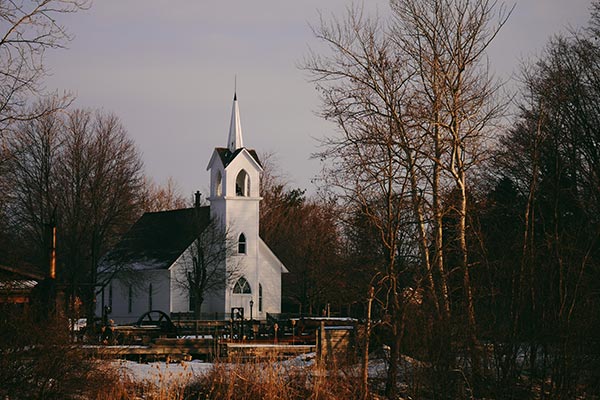
Michigan Town Votes to Allow Non-Christians to Buy Homes
- By Kelly Frazier --
- 13 Aug 2018 --

Bay View Association brings an end to its controversial religious requirement.
United Methodist Church’s Bay View Association introduced two requirements for people to own cottages on their property in 1942. They were – the homeowner had to be Caucasian and Christian. However, these rules didn’t apply to the people working in the cottages. The Bay View Association is in charge of 337 acres, which consists of cottages, inns, parks, roads, a chapel, a library, and the Bay View Historical Museum.
Michigan Town Votes to Allow Non-Christians to Buy Homes[/tweetthis]
After a decade, the association decided to drop their Caucasian requirement but didn’t do the same with the one where the owners had to be Christian. Even the Roman Catholics had restrictions on purchasing the property, as only 10% of the cottages were available to them. The buyers also had to get a letter of recommendation from the pastor, to become eligible for the purchase.
Those who defended the association’s requirements stated that as it was a private organization, it had the right to set rules for its members. Due to its affiliation with the United Methodist Church, the laws for public places didn’t apply to the association.
However, the Bay View Chautauqua Inclusiveness Group filed a lawsuit, saying that the association violated civil rights laws, the Fair Housing Act, and the First Amendment.
According to the lawsuit, the Methodist ministers founded the association in 1875 for private cottage owners. Due to the passing of the 1889 state law, the association had to operate as a municipal body. As a result, they had to follow the federal and state constitutions.
The Bay View Chautauqua Inclusiveness Group said that the association didn’t have a meaningful association with the church, as they paid taxes. Also, their owners make a profit and don’t depend on the church for their operation.
Immense pressure brings positive change
The association responded to the lawsuit by saying that it was possible to change their requirements. The members could pass new rules, after getting the necessary votes.
After facing tremendous pressure from the U.S Department of Housing and Urban Development, they decided to make the necessary changes. The ownership requirement was changed by the association, after getting the approval from 70% of their members.
They made an official statement that they respect the decision of their members to bring change. Even though the inclusiveness group was successful, they want to continue pursuing their lawsuit until the association fully complies with the state and federal law.



















